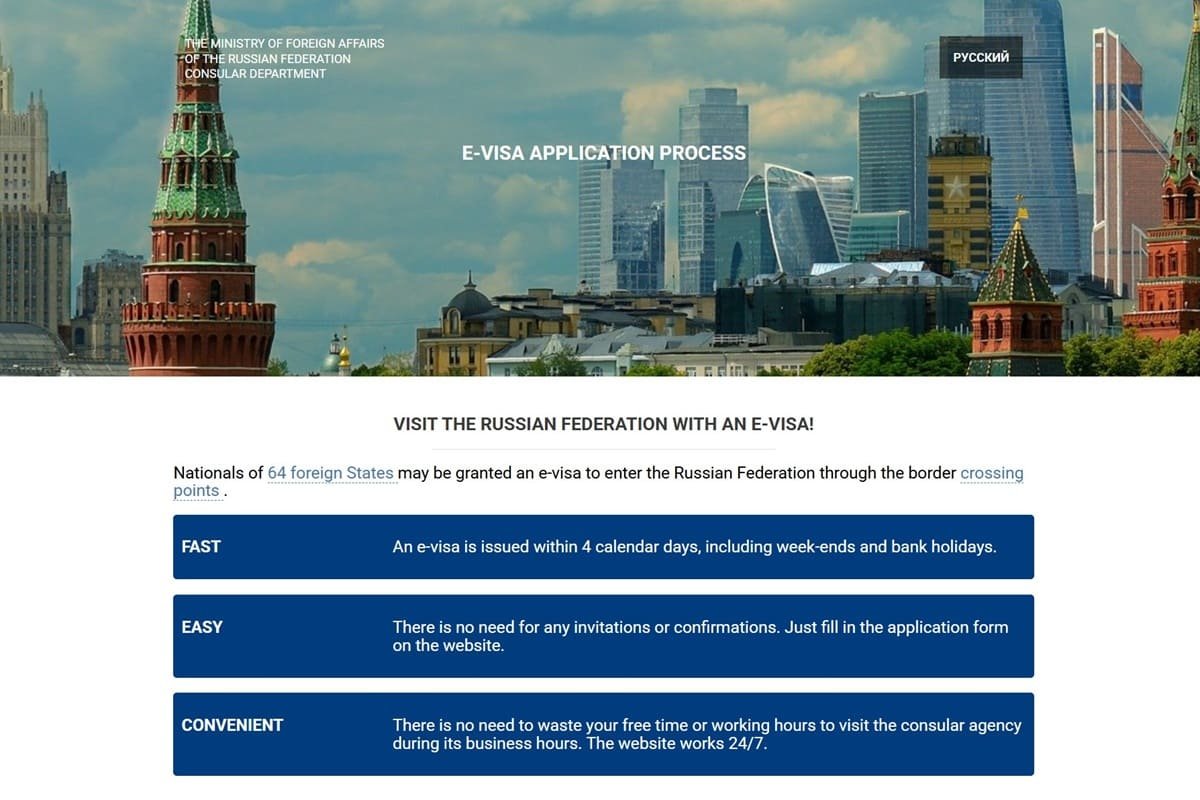Less than two years after launching the service for visitors from 64 countries, Russia has announced that it has passed the one million mark for electronic visas issued. The authorities are now planning to extend their validity, marking a new stage in the modernization of the country’s migration system.
The Russian Ministry of Foreign Affairs has officially announced the issuance of the one-millionth electronic visa (e-Visa) since the system was launched in August 2023.
“On April 5, the one-millionth foreign national received a unified electronic visa. It was a Chinese citizen planning to visit the Russian Federation for tourism purposes,” the Russian Foreign Ministry stated.
The e-Visa system, available to citizens of 64 countries, allows travelers to apply online for tourist, business, or private visit visas without needing to visit an embassy. Applications are typically processed quickly, with responses issued within four days.
According to the ministry, 78% of all visas issued by Russia since August 1, 2023, have been e-Visas.
This result demonstrates the undeniable success of the project and the strong demand for the unified electronic visa from foreign citizens, thanks to its simplicity and convenience.
Ministry of Foreign Affairs of the Russian Federation – April 7, 2025
Strong demand from Asia driving the numbers
The one-millionth e-Visa was granted to a Chinese citizen, highlighting the significant role of Asian travelers in the growth of the program. China, along with the following 63 countries, is eligible for the Russian e-Visa system:
- Austria, Bahrain, Belgium, Bhutan, Bulgaria, Cambodia, China, Croatia, Cyprus, Czech Republic, Denmark, Estonia, Eswatini, Finland, France, Germany, Greece, Hungary, Iceland, India, Indonesia, Iran, Ireland, Italy, Japan, Jordan, Kenya, Kuwait, Latvia, Liechtenstein, Lithuania, Luxembourg, Malaysia, Malta, Mexico, Monaco, Myanmar, Netherlands, North Korea, North Macedonia, Norway, Oman, Papua New Guinea, Philippines, Poland, Portugal, Romania, Saint Lucia, San Marino, Saudi Arabia, Singapore, Slovakia, Slovenia, Spain, Sweden, Switzerland, Taiwan, Tonga, Trinidad and Tobago, Turkey, Turkmenistan, Vatican, Vietnam and Zimbabwe.
Tourist flows from Asia have seen a notable recovery in 2024, supported by the easing of health restrictions, increased air connectivity, and international promotion campaigns by Russia. Authorities claim these efforts have helped attract a broader audience beyond traditional tourism markets.
E-Visa validity set to be extended
In light of this growth, the Russian government is aiming to expand the program further. Maria Zakharova, spokesperson for the Ministry of Foreign Affairs, recently announced that her ministry, in coordination with other federal agencies, is working on a proposal to extend the validity of the e-Visa.
The new format would increase the validity of the electronic visa from 60 to 120 days, with the maximum length of stay extended from 16 to 30 days. This reform aims to provide greater flexibility for travelers, whether they are tourists, business visitors, or private guests.
Gradual modernization of entry procedures
Beyond the e-Visa, Russia is considering broader reforms to its entry system. President Vladimir Putin recently proposed replacing the traditional paper-based migration cards, filled out upon arrival, with an automated electronic authorization system. This transition would not only streamline the entry process but also enhance border security and the management of migration flows.
Authorities highlight the advantages of such modernization: administrative simplification, faster processing times, and a better overall experience for visitors—all while maintaining a high level of control.
Regional cooperation: Belarus launches e-Visa system
The momentum behind e-Visas is also gaining traction in neighboring countries. Last month, Belarus officially launched its own electronic visa system, now available to citizens of over 60 countries.
Like Moscow, Minsk is betting on digitalization to attract more international visitors and make short stays easier.
This development is part of a broader framework of regional cooperation. On January 11, 2025, a mutual recognition agreement between Russian and Belarusian visas came into effect. In practice, this means a foreign national holding a visa from either country can now travel freely within both, as long as they enter through the country that issued the visa. This long-anticipated measure marks a major step forward in regional integration on mobility.
A cautious yet deliberate opening
Amid a complex international environment, Russia is seeking to strengthen its ties with countries across Asia, the Middle East, Latin America, and Africa by fostering human, economic, and cultural exchanges. The rise of the e-Visa program—combined with extended stay options and mutual visa recognition with Belarus—reflects this strategic direction.
Nonetheless, this openness remains regulated: eligible nationalities are determined by government decree, and all applications are subject to security screening. Russia’s approach blends controlled openness with technological innovation, aiming to strike a balance between accessibility and sovereignty.







